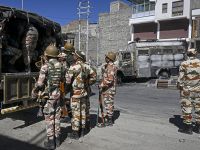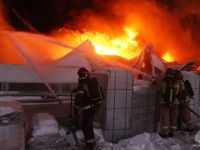UAE Economic relations with Sudan
The economic relations between Sudan and UAE have witnessed accelerated development during the last five years. UAE is considered the second largest investor in Sudan after China with a total investment of about $7 billion and a bilateral trade that grew annually by more than 30 %.
Sudan's economy is booming on the back of the increase in oil production, high oil prices, and large inflows of foreign direct investment. Real GDP growth registered more than 10% per since 2006. The country continues to take steps toward liberalization.
Economic Indicators
According to the country ranking list published by the International Monitory Fund (IMF), UAE ranks in the 37th place with nominal GDP of about US $ 192 billion, while Sudan is ranked in the 65th place. In 2007, Sudan real GDP grew by 12.8% indicating the large expansion of the economy.
Table 1 below provides a brief comparison between UAE and Sudan for some economic indicators.
Table 1: UAE and Sudan Economic Indicators (2007)
UAE Sudan
GDP (USD billion)* 192 49.7
Agriculture
2% 31.5%
Industry 59% 35.7%
Services 39% 32.8%
GDP per capita, USD (000) 49.8 2.5
Real GDP growth 8.5% 12.8%
Population (million) 4.6 40.2
Labor force: million
3.119 7.415
Agriculture 7% 80%
Industry 15% 7%
Services 78% 13%
Inflation 12% 5.3%
Unemployment rate 3.17% 18.7%
Population growth rate 3.38% 2.22%
Source: UAE Ministry of Economy; IMF; and CIA Factbook
* 2007 estimates
Although the UAE economy is larger than that of Sudan in terms of GDP, but the GDP growth rate of Sudan is faster than that of UAE (12.8% and 8.5% respectively). On the other hand, the UAE per capita GDP of $ 49.9 thousand exceeds that of Sudan which was estimated at $ 2.5 thousand. The industrial and the services sectors are the major drivers of the economy of the two countries. Both sectors occupy the lead share of their respective GDPs. However, agriculture has an equivalent share in the economy of Sudan (31.5%). Contrary to that, the agricultural sector accounted for only 2 % in the UAE GDP.
Investment Environment
The Sudanese government in its efforts to improve the business environment and strengthen the economy has introduced a medium term development program from 2004-2009 aiming at injecting more US $ 400 billion to improve the infrastructures (roads, telecommunications, education, health systems, etc.).
To improve and promote the investment climate, the Sudanese government has concluded a number of regional agreements aim at encouraging investment and creating trade opportunities with other countries such as COMESA trade bloc, Arab Free Trade Organization and WTO. Furthermore, Sudan has strengthened relations with regional and international organizations and corps that related to investment.
The Sudan Government encourages foreign direct investment and is undertaking steps to improve the investment climate. The government looks forward to solving the problem of the south and Darfur to establish stability and security in the southern and western states and in the entire county
Foreign Trade
In 2006, Dubai trade with Sudan, not including the free zones, accounted for more than 90% of the UAE total trade with Sudan. Therefore, Dubai trade with Sudan in the year 2007 inclusive of free zones is used to represent the recent UAE trade with Sudan.
Trade between Dubai and Sudan flourished during the recent years. In 2007, Dubai non-oil foreign trade with Sudan totaled AED 3.1 billion, out of which, 78% were re/exports and 22% were imports. During the period 2002-2007, Dubai imports from Sudan increased by cumulative annual growth rate (CAGR) of 50%, while on the other hand, Dubai re/exports to Sudan increased by CAGR of 29% (figure 1). In 2007, Dubai imports from Sudan increased by 66%.
Figure 1: Dubai non-oil foreign trade with Sudan, 2002-2007
Source: Dubai world
In 2007, Dubai imports of pearls, precious or semi-precious stones, precious metals from Sudan accounted for more than 88% of the total imports followed by the mineral fuels, mineral oils, bituminous substances, mineral water, which accounted for 9%. The less imported products are oil seeds, oleaginous fruit, industrial or medicinal plants (0.8%) and aluminium & articles thereof (0.4%).
Dubai re/exports to Sudan are dominated by the nuclear reactors, boilers, machinery , parts thereof that accounted for 21% of the total exports/re-exports followed by electrical machinery and equipment and parts thereof (15%), vehicles other than railway or tramway rolling-stock (12%) and plastics and articles thereof (4%).
The extraction of petroleum has given the Sudan an extra important economic dimension. Furthermore, the strategic geographic location makes Sudan a passage to other African countries which qualifies it as one of the commercial and investment inlets to those countries.
The diversification of Sudan economy has opened the door for variety of investment opportunities in different fields such as agriculture, manufacturing and services.
Agricultural sector is one of the Sudan's strongest sectors. As the availability of cultivated land and natural irrigation systems provide an extra opportunity for investments in the agricultural sector. This is an opportunity that the UAE can look at, in terms of direct investment on food products, food processing and manufacturing and direct trade. This will assist UAE to ensure the availability of food stocks and achieve their strategy of food security.







